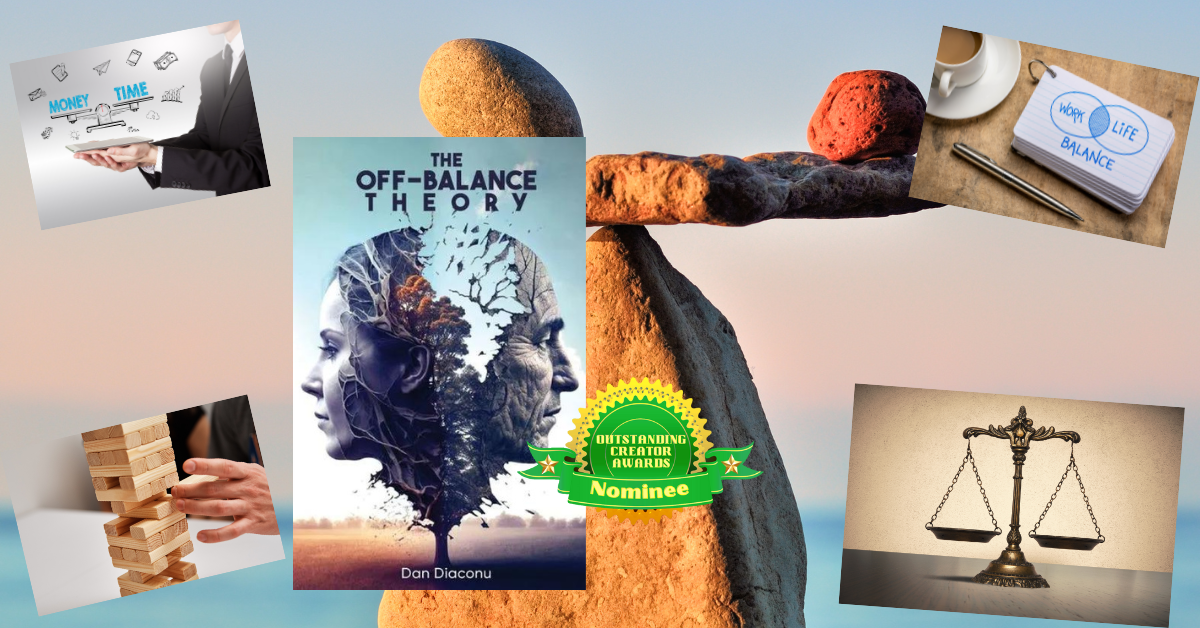|
Score: 96/100 (9.6 out of 10)
The Off-Balance Theory will undoubtedly go down as one of the best non-fiction books of the contest. It is possibly one of the best non-fiction books of 2023! What a special, special book by an engineer who saw the parallels between the principles/concepts in that field and other fields. What makes it so special? Well, The Off-Balance Theory is multi-faceted in its approach. On one hand, it is a phenomenal self-help book that can help guide an individual to reframe and reorganize their life and thinking to be more successful and less stressed. It is incredibly scientific and theoretical in its approach, using facts, research, and statistics from economics, physiology, biology, and other physical and social sciences. This has to be one of the most ambitiously researched and written non-fiction books of the season! On the other hand, it is a highly philosophical book, comparing the human mind and body to a system—where one goes, the other follows. The book follows the concept of system theory. One of the major takeaways from this is that almost everything in our world runs as part of some sort of system, whether an ecological, economical, biological, or some other system. The key to getting the best results possible in all that you do is understanding and taking advantage of these systems. For example, if you're in a chess match against someone who plays a Colle-Koltanowski system opening, a French Defense, or a Sicilian Defense, you already know most of their first moves and can probably respond/attack/defense accordingly, giving yourself the best possible chance to win. However, what happens when you don't understand or can't predict what your opponent is doing? Well, you're at a disadvantage. You're more likely to be taken by surprise and defeated. The same concept applies to solving just about any problem that exists in our world or universe. So much of physics, for example, is mathematical. If you know the formulas and can figure out the arithmetic, you can accomplish just about anything including sending a rocket to the Moon or building a tower or a bridge that can withstand hundreds of tons of force on a daily basis. You can build a giant metal ship that will somehow not only float in the ocean, but move at over 20 knots while sustaining over a thousand people on board. You could even (as the later parts of the book discuss) use your knowledge of systems to program an AI to streamline certain processes. These are just some of the things that can be accomplished when you understand systems. The idea of “trust the process” comes to mind. Among the systems discussed in this book are economic ones like capitalism and communism. The book takes a surprisingly fair and balanced approach to socio-political issues, even ones like LGBTQA+ rights—seeing restrictions against LGBTQA+ people as evidence that the rights of the minority are still being frequently challenged by the wants of the majority. At the same time, the book softly defends capitalism as the best economic system we have available to us to pull people out of poverty and give incentives for innovation and growth. So, this isn't a right-wing book or a left-wing book. It's a book that sits somewhere in the middle of all of that. The writing, content, and tone of this book reminded us a lot of some of our all-time favorite contestants: Ralph L. Bayrer and Michael Cook. It's highly theoretical and philosophical, presented in a very fact-based, rational, and logical way. This was all the more impressive when we learned that the author actually speaks English as a second-language. They write better than most native speakers! Check this out on Amazon!
0 Comments
Leave a Reply. |
Archives
July 2024
Categories |

 RSS Feed
RSS Feed